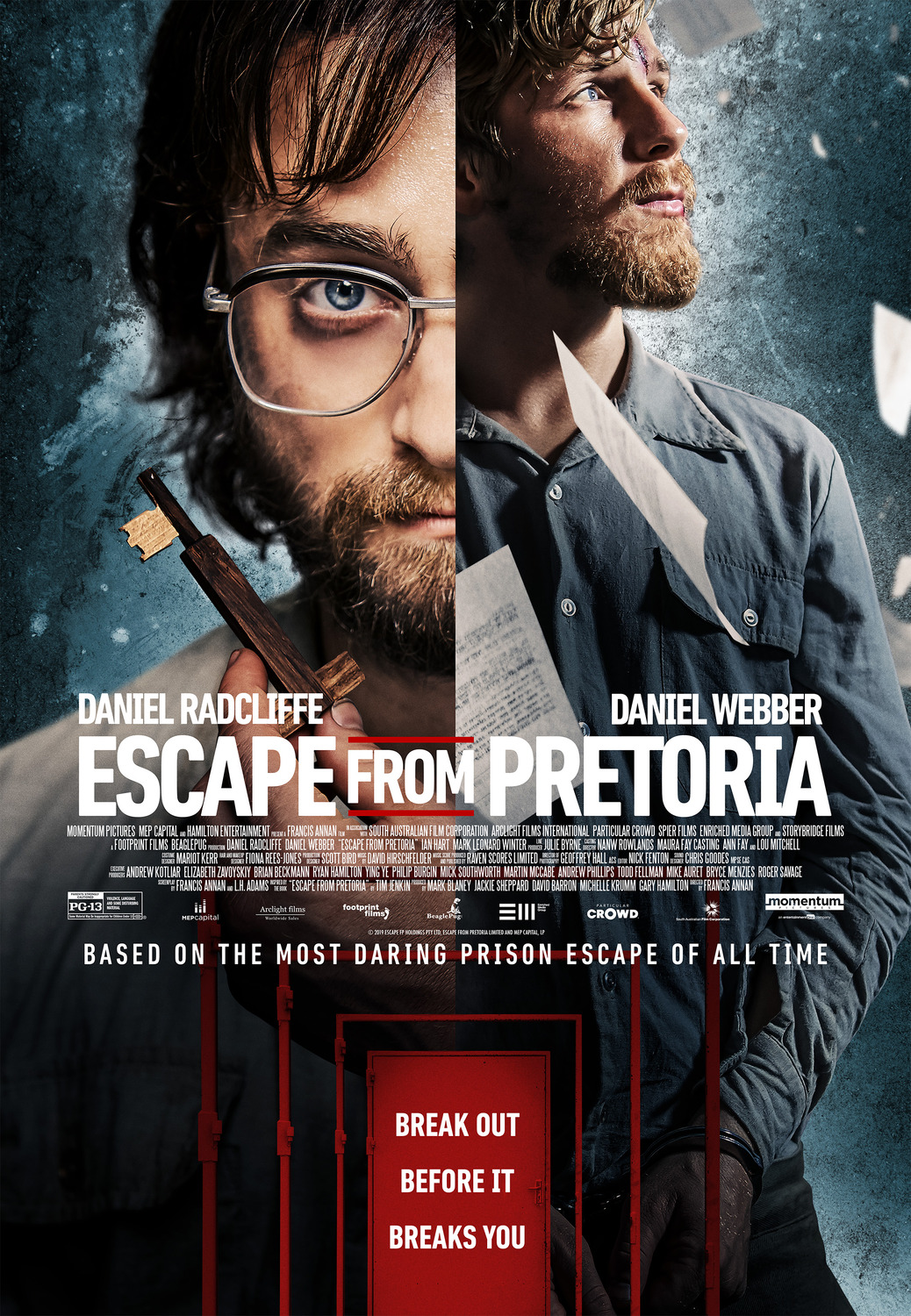With all the impactful and important films that have been produced documenting the struggle against Apartheid in South Africa (Cry Freedom, A Dry White Season, Mandela: Long Walk to Freedom), it’s borderline-incredible that none have been made telling the story of Tim Jenkin and Stephen Lee. The two white South Africans were arrested in the late 70s for promoting the African National Congress and the rights of blacks in their own country (back when you could be jailed for handing out brochures) and were imprisoned for 12 and 8 years respectively.
Now writer-director Francis Annan is bringing their story to life—along with that of French sympathizer Alex Moumbaris—by relating their struggles to formulate and carry out a plan to escape from Pretoria Central Prison in 1979. (No spoiler alert needed. It’s right there in the title.)
Daniel Radcliffe continues to shed the last vestiges of his decade-plus as Harry Potter, anchoring the film as Jenkin, a scruffy activist who planted a series of harmless leaflet bombs with Lee in Johannesburg before being nabbed by police. Immediately upon arriving in jail, the two begin planning their escape and then proceed to undertake a long and meticulous operation that will eventually come to involve crafting dozens of keys from wood in the prison’s shop. The process takes the men well over a year, which Annan wisely chronicles by periodically popping up an on-screen reminder of how many days of incarceration have passed as key events take place.
Escape from Pretoria’s finest moments come as Jenkin and Lee try (and often fail) to align the stars in exactly the right way required to make the escape a reality. There is, of course, no shortage of trial and error—the remnants of which would instantly tip off the guards to the scheme’s existence—which means the film takes on the familiar angst of a prison escape movie. This is particularly in the nerve-wracking third act, when Radcliffe shines brightest. Perfectly cast, his resounding performance as Jenkin elevates the white-knuckle film from what could well have been a short shelf-life as a direct-to-VHS-style misfire.
The film’s only flaw is the near evaporation of the anti-Apartheid storyline from almost the outset. If not for the film’s all-too-brief prologue, which includes gut-wrenching news footage of actual 1970s protests, there’s precious little to distinguish it from, say, The Shawshank Redemption, Papillon or any other “prison flick”. It’s not a fatal flaw by any means but could have given the film even more gravitas and real-world relevance. As it is, Escape from Pretoria still succeeds virtually across the board as both a critical teaching moment and a cinematic thriller, shedding well-deserved light on a small but inspirational chapter of world history.
Rating
4.5/5 stars
